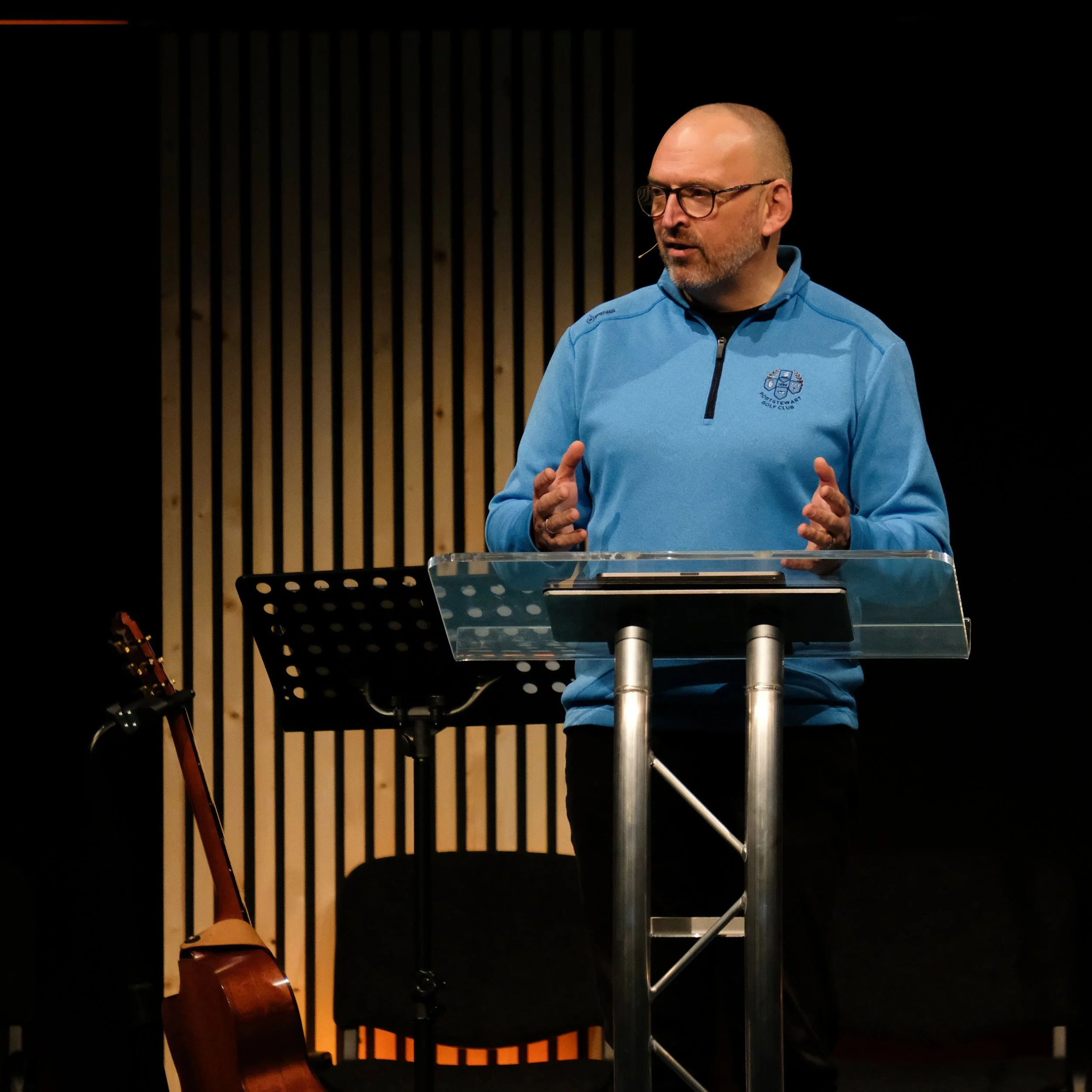Our Beliefs.
The Bible.
The Bible, as originally given, is inspired by God. Through it God speaks to us and every word is infallible. It is our only authority for what we believe and practise.
God.
There is only one God, revealed in the Bible as three persons: the Father, the Son and the Holy Spirit. These three are one God, co-eternal and co-equal.
(Deuteronomy 6:4; 1 Corinthians 8:6; 2 Corinthians 13:14; Hebrews 1:3; Revelation 4:11)
Man.
Man, created by God in his image and likeness, sinned. As a result all men are sinful and guilty before God and subject to God’s righteous wrath and condemnation.
(Genesis 1:26-27; 2:17; 3:16f; John 3:36; Romans 3:9-23; 1 Corinthians 15:21-22; Ephesians 2:1-3)
To be a growing and maturing New Testament community of believers, devoted to Jesus Christ as Lord, and to one another, committed to knowing, living and proclaiming His Word in the power of the Holy Spirit, involved in serving the Body of Christ and reaching lost people with all the resources God has given us.
The Lord Jesus Christ.
The Lord Jesus Christ, the Son of God, became man, being conceived by the Holy Spirit and born of the virgin Mary. He is both eternal God and a perfect, sinless man.
God is love, and through the death of Jesus Christ on the cross He has provided the way in which sinful people can be brought into a right relationship with Him. The death of the Lord Jesus Christ is the only sacrifice for sin and through it there is freedom from the guilt and penalty of sin.
On the third day after His crucifixion the Lord Jesus Christ was raised bodily from the dead and in His risen, glorified body He ascended into heaven to the right hand of God the Father.
The Lord Jesus Christ will return in person for those who have believed in Him, both those who have died and those who are alive, and together they will be with Him for ever.
(Isaiah 7:14; Matthew 1:18-25; Mark 13:32; John 14:3; Acts 1:9-10; Romans 3:24-25; 1 Corinthians 15; 1 Thessalonians 4:16-17; 2 Thessalonians 1:7-9; Hebrews 7; 1 Peter 2:21; 1 John 2:1-2, Revelation 1:7)
The Holy Spirit.
The Holy Spirit indwells every believer from the moment of conversion. His major task is to glorify the Lord Jesus in the life of the believer, producing increasing likeness to Christ in character and behaviour. It is the Holy Spirit who gives the power to fight against sin and to witness to the world. He also gives gifts to build up the church.
(John 16:8-13; Romans 8:9; 1 Corinthians 12:12-14; Ephesians 1:13-14; 5:18; Titus 3:5; 1 John 2:20-27)
Salvation.
Salvation cannot be earned or deserved. It is God’s free gift, given when a person repents and trusts Jesus Christ, acknowledging Him both as Saviour and Lord. Because of God’s undeserved love and mercy the person who trusts in Christ receives complete forgiveness of sins, becomes a child of God and receives eternal life which he/she can never lose.
There will be a final judgement when those who have not been saved and whose names are not found in the book of life will suffer eternal punishment.
(John 1:2; 3:16-36; 5:24; Romans 5:9-10; 8:1; Ephesians 1:3-14; 2:4-10; Titus 3:4-7)
Ordinances.
We observe two ordinances: Baptism and the Lord’s Supper. We believe the New Testament teaches that every person who comes to personal faith in the Lord Jesus Christ is commanded to be baptised. Baptism expresses in symbolic form the individual’s identification with the Lord Jesus Christ in His death, burial and resurrection. It marks obedience to Jesus Christ as Lord as the basis of a new life.
It is the privilege of every follower of Jesus Christ to meet with other believers to take bread and wine in remembrance of the Lord, thus proclaiming His death until He returns. To this meeting we welcome all who have come to personal faith in the Lord Jesus and who want to obey Him.
(Matthew 28:19-20; Luke 22:19-20; Acts 2:38; 8:12, 35-38; 1 Corinthians 11:23-29)
Membership.
Membership of the church brings with it certain responsibilities central to which is obedience to the Lord’s command to love one another as He Himself has loved. This involves praying for one another, encouraging one another, sharing one another’s burdens, showing hospitality and actively caring for each member of the church. In addition each member is responsible to support the activities of the church and to engage in regular financial giving.
The local church is self-governing under God, submitted to the authority of the Word of God, the Lordship of Christ and the guidance of the Holy Spirit.
The Church.
There is one universal Church – the Body of Christ. Into this body, of which the Lord Jesus Christ is Head, all believers are baptised in the Holy Spirit at the moment of conversion.
In addition to the universal Church, made up of all believers everywhere, the Lord Jesus Christ also designed that there should be local churches. The local church is made up of believers and has a threefold purpose: the praise and worship of God; the upbuilding of each other in love; witness to the world.
Note: We are aware that there are many believers today who have had experiences subsequent to conversion which they call ‘baptism in the Holy Spirit.’ We have no wish to deny the reality of or the need for genuine experiences of the working of the Holy Spirit in our lives. We need both to be open to all the Holy Spirit desires to do and to test everything by the Word of God. We believe however that the term ‘baptised in the Holy Spirit’ as used in the New Testament refers to the way in which people are made part of the Body of Christ
(Acts 2:41-42; Romans 12:5; 1 Corinthians 12:12-14; 2 Corinthians 11:2; Ephesians 1:22-23; 5:23-24)
Leadership.
The local church has a number of elders. The Holy Spirit calls and qualifies such men to be examples, teachers, pastors and overseers who are to care for the members of the church in accordance with the Word of God. It is the responsibility of the members of the church to recognise, honour, support and obey their elders in all matters of church life.
The elders are responsible to ensure that there is discipline in the church. This ranges from the avoidance of disorderly believers to public rebuke, and even to the excommunication of those whose doctrine or conduct makes this extreme step necessary.
(Acts 20; 1 Timothy 3; 5; 1 Peter 5)
The Authority of Scripture.
Scripture is the final authority in all matters of faith and practice. Glenabbey Church recognises that it cannot bind the conscience of individual members in areas where Scripture is silent. Rather, each believer is to be led in those areas by the Lord, to whom he or she alone is ultimately responsible.
We believe the Statement of Faith to be an accurate summary of the central truths of Scripture. It is what we as a church believe and represent. All members of the church should ensure that they speak and act in ways that are consistent with the Statement. All members of the church should refrain from advocating doctrines that are not included in the Statement of Faith in such a way as to cause dissension.



